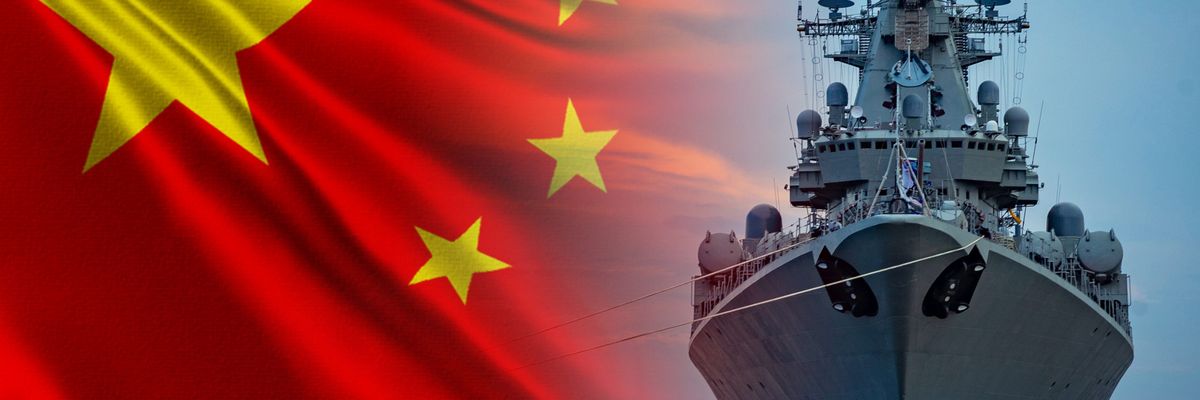The long-awaited unclassified U.S. 2022 National Defense Strategy has finally appeared. As expected, much of it is devoted to describing how to counter the dire threats to U.S. interests posed by China’s military (the People’s Liberation Army).
While avoiding the kind of shrill, inflated rhetoric so common in Trump-era security documents, the 2022 NDS unsurprisingly continues past broad-brush characterizations of China as an aggressive nation working hard on all fronts to weaken the U.S. and refashion both the Indo-Pacific and the (undefined) international system to suit its authoritarian interests.
There is arguably a greater emphasis in this NDS on the threats to homeland defense, thus reinforcing the existing narrative of China as a comprehensive security challenge to the United States. And this, of course, is seen to require a comprehensive, heightened effort not only to prevent Chinese aggression but to counter Chinese influence virtually everywhere.
As usual in U.S (and Chinese) security and strategy documents, the NDS provides no hint that Chinese threats might involve responses to Washington's actions and statements, as part of an increasingly hostile, interactive dynamic to which both Washington and Beijing contribute. But that is probably too much to expect from a DoD perspective that defines deterrence solely in terms of military countermeasures against active and potential aggression, with little attention paid to the obvious need for credible assurances designed to set limits on one’s own threatening behavior (more on this below).
The NDS also fails to grasp the fundamental fact that 95 percent of Chinese military or gray zone aggression is directly related to disputes over PRC sovereignty claims along China’s maritime periphery. This in no way excuses Chinese actions in these areas, but a failure to acknowledge the motivations behind the actual cases of Chinese aggression merely contributes to an undifferentiated presentation of China as “an aggressor” requiring broad counters.
In other words, it adds to the existing high level of threat inflation we see on both sides. And it also ignores the fact that, if cases of kinetic military action qua aggression are used as a metric for measuring threats, the U.S. is arguably the most threatening nation on the planet. But I digress.
Another worrisome feature of the NDS is its stress on collaborating with allies and partners to “cement joint capability with the aid of multilateral exercises, co-development of technologies, greater intelligence and information sharing, and combined planning for shared deterrence challenges.”
This reinforces the existing trend toward integrating (one might say corralling) Japan, South Korea, the Philippines, and Taiwan into a uniform, U.S. defense perimeter oriented above all else to countering Beijing. Whether Washington’s allies will go along with being a part of such an effort is far from clear. The NDS states that it respects “the sovereignty of all states” and knows that “the decisions that our Allies and partners face are rarely binary.” But this sounds like one of those rare exceptions.
In addition, how this vision of regional defense integration relates to the U.S. One China policy regarding Taiwan is left unanswered. The NDS merely states that DoD “will support Taiwan’s asymmetric self-defense commensurate with the evolving PRC threat and consistent with our one China policy.” How is that supposed to work, especially if Washington is now also treating Taiwan as a vital “non-NATO ally?”
The short answer is, it won’t work, because Beijing will see it as yet another step toward providing Taiwan with a virtual defense guarantee. And it will respond accordingly, thereby ratcheting up the confrontation even further, risking a potentially devastating armed conflict.
The NDS is not all bad news. It states that conflict with the PRC is undesirable. It supports “broader whole-of-government efforts to develop terms of interaction with the PRC that are favorable to our interests and values, while managing strategic competition and enabling the pursuit of cooperation on common challenges.”
But, as welcome as this is, it is largely boilerplate, repeated endlessly by the administration with few if any concrete indications of how competition and cooperation will relate to one another or should be bounded.
In this regard, the NDS commendably expresses a desire to “avoid unknowingly driving competition to aggression,” and to “manage escalation risks.” And it states that DoD “will continue to prioritize maintaining open lines of communication with the PLA.” Positive words, but thus far just more boilerplate.
Conveying messages clearly and maintaining open lines of communication have become another administration mantra uttered by every official. It conveys a politically correct stance of passivity toward Beijing, a sort of message that “sure we’ll talk if they want to talk,” that deflects the obvious need for both sides to take a much more proactive effort to reach understandings involving some level of mutual compromise.
So, all in all, the NDS is largely more of the deterrence-centered, zero-sum approach to security we have come to expect, albeit with a slightly greater awareness expressed of the danger of competition veering into conflict. It offers no concrete policies on how to avert such a risk, however, while doubling down on the effort to build a comprehensive campaign of push-back against Beijing that includes a grand anti-China coalition in the Indo-Pacific. This will not ensure American security, nor global prosperity.
















